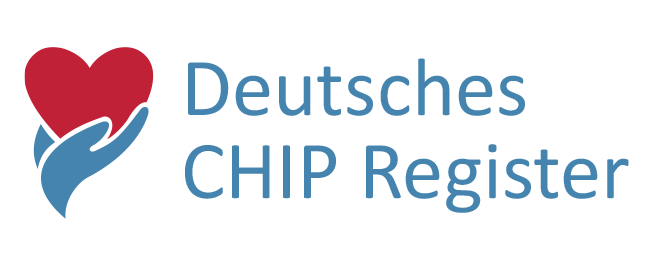
A warm welcome
German
CHIP
Registry
All information for affected persons, physicians and scientists.
Collection of longitudinal data on the course of CHIP.
Easy registration and individual support.


A warm welcome
Clonal Hematopoiesis
(CHIP)
in hematology
All information for affected persons, physicians and scientists.
Collection of longitudinal data on the course of CHIP.
Easy registration and individual support.
Scientific and interdisciplinary diagnostics and therapy
CHIP - research, diagnosis and therapy
Find out, get involved and help define therapies and early detection signals

Gene database

Current research

Specialist portal laboratory/doctor

Extensive knowledge base

Patient Information Service
Learn more

Calculate your personal risk
CHIP as a novel risk factor
Often, the detection of CHIP is an incidental finding. If the blood count is normal, regular blood count checks should be performed to detect possible progression and to best reduce your own risk.
Goals
Determine individual risk
Improve prevention and therapy
Receive individual recommendations
Scientific publications
Do you have questions?
Help Center
If you have any questions, we would be happy if you contact us directly. We have summarized the most frequently asked questions here.
CHIP mutations significantly increase the risk of cardiovascular heart disease such as myocardial infarction and stroke, as well as premature death. The level of risk depends on the specific mutation and the mutation load (proportion of mutated leukocytes).
To date, CHIP-specific therapies have only been used in trials. These are usually aimed at reducing inflammation and have not yet been approved for all patients. In general, follow a healthy lifestyle, control your blood pressure and cholesterol levels, quit smoking, exercise regularly, reduce stress, maintain a heart-healthy diet, take your medications, and see your healthcare provider for regular checkups.
Yes, a heart-healthy lifestyle is critical to lowering your risk of heart attack – especially as a CHIP mutation carrier. Make sure you eat a balanced diet low in saturated fat and trans fat, exercise regularly, reduce stress and maintain a healthy weight. These lifestyle changes will help improve your overall cardiovascular health.
Cardiovascular events are most commonly observed in association with CHIP. However, CHIP mutations also slightly increase your risk of developing blood cancers, such as acute myeloid leukemia (AML). Regular checkups and close communication with your medical team will help identify and treat potential complications.
Depending on your underlying mutation and mutation burden, an individual risk will result. All patients with CHIP should be monitored at a specialized CHIP clinic at least once a year. Patients at particularly high risk are seen at shorter intervals to monitor your cardiovascular health and assess for possible progression. This includes regular blood tests, consistent adjustment of risk factors, and further cardiovascular evaluation if necessary.
Currently, infrastructure for CHIP patients is increasingly being established throughout Germany. In Munich, a CHIP outpatient clinic already exists at the Klinikum Rechts der Isar, which provides both hematological and cardiovascular advice to your patients.









